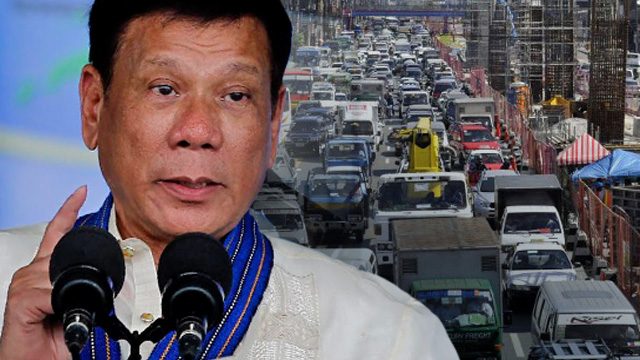SUMMARY
This is AI generated summarization, which may have errors. For context, always refer to the full article.

MANILA, Philippines – A lack of policy continuity and a “subpar” business environment for infrastructure could dissuade investors from participating in the country’s public-private partnership (PPP) projects, even with a robust framework, said the research unit of Fitch Ratings.
BMI Research said in a February 1 report that since President Rodrigo Duterte took office in June 2016, his administration has “expressed frustration on the prolonged implementation of PPP projects and cast doubt on the appropriateness of PPPs for certain infrastructure projects.”
Finance Secretary Carlos Dominguez III had said that the Duterte administration will avoid the PPP route in certain infrastructure projects to fast-track completion and save on costs. (READ: PH’s PPP thrust: Work in progress)
Even the new PPP Center executive director, Ferdinand Pecson, said the Philippines could see fewer PPP projects than before, as the government seeks new methods best suited for each public infrastructure deal.
“We are looking at this in its totality, from financing to operations and maintenance. If it turns out that the government is better off constructing the infrastructure using financing from soft loans with lower interest rates, we would pursue this,” Pecson added.
During Duterte’s visit to Beijing, he and Chinese President Xi Jinping signed 13 cooperation deals, including a memorandum of understanding on the lists of transportation and infrastructure projects.
The unit of Fitch Ratings noted that with the Philippines’ friendlier ties with China, the Duterte administration is more likely to shift to a “government-centered investment approach.”
Other modes sought
BMI Research said it expects fewer public infrastructure projects to be open to private bidders and subsequently greater demand for government budgets to fund infrastructure developments.
The Duterte administration has rolled out two PPP deals thus far: the operations, maintenance, and development of 5 regional airports as well as the P1.47-billion New Nayong Pilipino.
This is in comparison with former president Benigno Aquino III’s reliance on PPPs to fund sizable infrastructure development plans.
“[This] lack of policy continuity in the Philippines is also a growing risk that could dissuade investors,” BMI Research said in its report. (READ: Ties with China to fill infra spending gap, pose risk to PPP)
The government is pushing for a new “hybrid” funding system consisting of a mix of PPP and official development assistance (ODA) funds.
‘Subpar business environment’
Even with the Philippines’ robust PPP framework, BMI Research flagged the country’s struggle with implementing projects on time and generating enough interest in proposed undertakings.
Since the PPP program started in the 3rd quarter of 2010 under Aquino, 56 projects have been launched. Of these, 4 were completed as of end-2016.
Most PPP deals have been repeatedly delayed by issues relating to financing, land acquisition, or contract renegotiations. (READ: 5 failed, shelved PPP projects under Aquino admin)
For instance, the construction of the P69.3-billion Metro Rail Transit Line 7 project only started in April 2016, following a 7-year delay due to the original concessionaire’s difficulty in securing a financial guarantee.
BMI Research also cited delays in the P64.9-billion Light Rail Transit Cavite extension, saying that it was “awarded efficiently” but suffered delays due to stalled right-of-way acquisition by the government.
The BMI report said projects also appear to be generating “insufficient interest from investors and contractors.”
“Two-thirds of the contracts awarded have had fewer than 3 bidders, while several other projects have been retracted and placed under review after they initially failed to receive any bids,” the report read.
“These difficulties highlight that, despite the Philippines’ strong PPP regulations, the country’s subpar business environment continues to hold back key infrastructure projects.”
The World Bank has ranked the Philippines’ PPP regulations as among the best in the world, recognizing its clear and well-defined laws, transparency requirements, and an independent dedicated agency.
“We believe that good PPP regulations are important in bringing private finance and expertise into the infrastructure sector, but the case of the Philippines shows that improvements in a country’s fundamental operating environment are also essential,” BMI Research said.
The Department of Budget and Management said the government plans to spend as much as P9 trillion on infrastructure over the next 6 years.
For 2017, the government has earmarked P847.2 billion for public infrastructure, amounting to 5.3% of the country’s gross domestic product. – Rappler.com
Add a comment
How does this make you feel?





There are no comments yet. Add your comment to start the conversation.